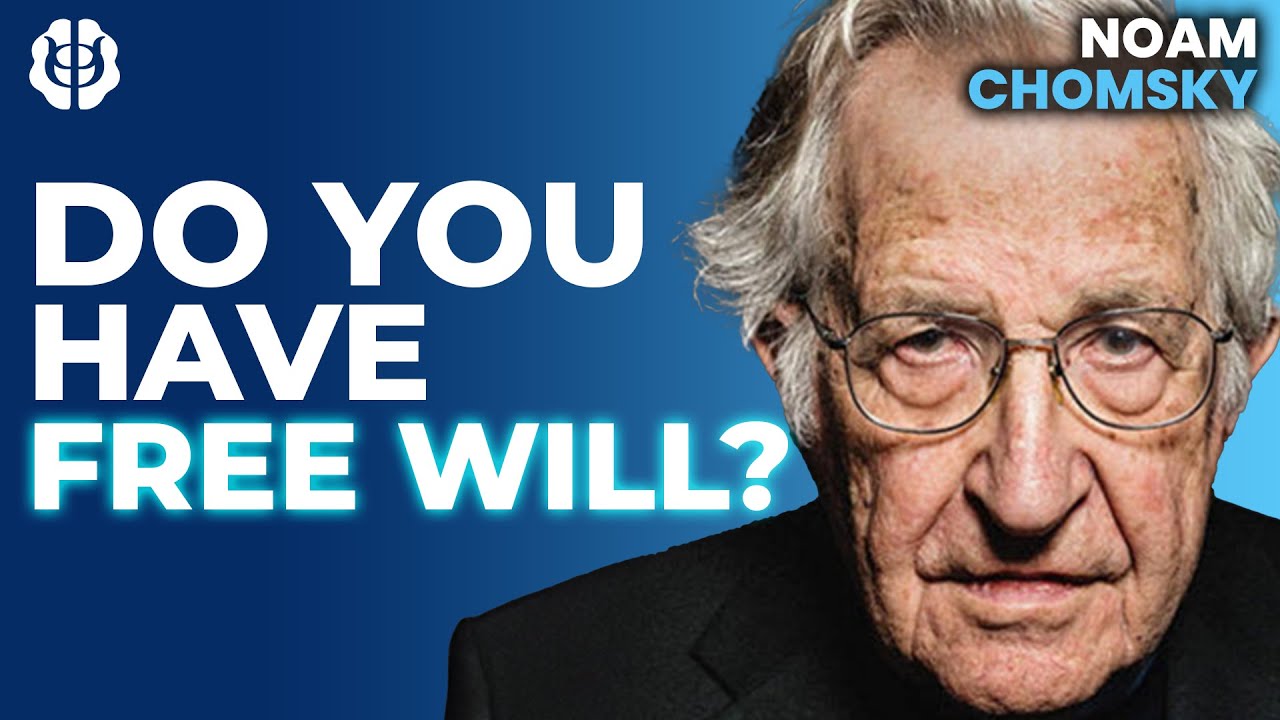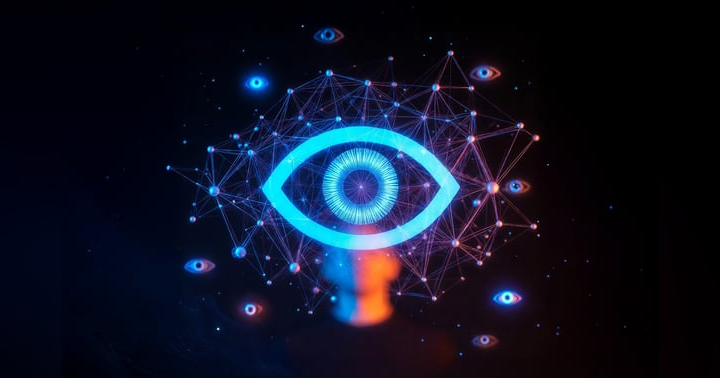The Interplay of Free Will and Moral Responsibility: A Chomsky Perspective

The age-old debate surrounding free will and moral responsibility continues to captivate philosophers, scientists, and everyday individuals alike. This blog post delves into the intricate relationship between these concepts, drawing on insights from the work of Noam Chomsky, a renowned linguist, philosopher, and cognitive scientist. We will explore how our understanding of free will, or the lack thereof, profoundly impacts our attribution of blame and praise, and whether a belief in determinism fundamentally undermines our moral framework. Join us as we navigate this complex terrain and uncover the nuances of free will and moral responsibility. This post is an extension of the ideas explored in the Noam Chomsky: Do We Have Free Will? Moral Responsibility & The Meaning Of Life podcast episode, where we discussed these profound ideas at length with Dr. Chomsky himself.
Introduction: The Conundrum of Free Will and Moral Responsibility
The question of whether we truly possess free will has been a subject of intense philosophical debate for centuries. Do our choices genuinely originate from our own volition, or are they predetermined by factors beyond our control? This inquiry holds profound implications for our understanding of moral responsibility. If our actions are not freely chosen, can we legitimately hold individuals accountable for their behavior? The attribution of blame and praise hinges upon the assumption that individuals possess the capacity to make genuine choices, and therefore, can be held responsible for the consequences of those choices. This blog post will explore the multifaceted dimensions of this intricate relationship, drawing upon diverse perspectives and ultimately focusing on the insights offered by Noam Chomsky.
Noam Chomsky: A Pioneer in Linguistics and Cognitive Science
Noam Chomsky is one of the most influential intellectuals of our time, renowned for his groundbreaking contributions to linguistics, cognitive science, and political activism. As "the father of modern linguistics," Chomsky revolutionized our understanding of language by proposing the theory of universal grammar, which posits that humans possess an innate capacity for language acquisition. His work has had a profound impact on fields ranging from psychology to computer science. Beyond his contributions to linguistics, Chomsky is also a prominent figure in analytic philosophy, social criticism, and political activism. He has authored over 150 books and 400 articles, analyzing topics ranging from the nature of power and propaganda to the intricacies of moral and ethical decision-making. Chomsky's unique perspective, combining rigorous analysis with a deep concern for human rights and social justice, makes him an invaluable resource for exploring the complex questions surrounding free will and moral responsibility. For further insights into his work, you can explore his extensive publications and resources available at his website.
Exploring Theories of Free Will: Determinism vs. Libertarianism
The debate surrounding free will is often framed as a conflict between two opposing viewpoints: determinism and libertarianism. Determinism asserts that all events, including human actions, are causally determined by prior events. In other words, every action is the inevitable consequence of preceding conditions. In contrast, libertarianism posits that humans possess genuine freedom of choice and the capacity to act independently of causal determinism. According to this view, individuals have the ability to choose between multiple courses of action, and their choices are not simply predetermined by prior events. Compatibilism attempts to reconcile free will and determinism, suggesting that free will is compatible with the idea that our actions are causally determined. These different theories each have significant implications for how we understand moral responsibility, and the attribution of blame and praise.
The Link Between Free Will and Moral Responsibility: Blame and Praise
The connection between free will and moral responsibility is deeply ingrained in our social and legal systems. We generally hold individuals morally responsible for their actions only if we believe they acted freely and had a genuine choice in the matter. This assumption underlies our practices of assigning blame and praise, administering punishment and reward, and holding individuals accountable for their conduct. If individuals are not truly free to choose their actions, the justification for holding them morally responsible becomes questionable. How can we fairly blame someone for an action that was predetermined or beyond their control? The debate about free will directly impacts our moral framework and raises fundamental questions about the nature of justice and fairness.
Chomsky's Perspective on the Implications of Determinism
Noam Chomsky offers a nuanced perspective on the implications of determinism, emphasizing the importance of focusing on the practical consequences of our beliefs about free will. While acknowledging the complexities of the debate, Chomsky suggests that, even if determinism is true, it does not necessarily undermine our capacity for rational action or moral judgment. Instead of dwelling on abstract philosophical questions, Chomsky encourages us to focus on the concrete realities of human behavior and the social structures that shape our choices. He argues that we can still make meaningful distinctions between voluntary and involuntary actions, and that we should hold individuals accountable for their behavior, even if their actions are ultimately determined by factors beyond their control. Chomsky's pragmatic approach emphasizes the importance of promoting justice and equality in the real world, regardless of our metaphysical beliefs about free will.
Linguistic Insights: How Language Shapes Our Understanding of Morality
Chomsky's work in linguistics sheds light on how language shapes our understanding of morality. He argues that language is not merely a tool for communication, but also a cognitive framework that influences how we perceive the world and make moral judgments. The way we frame moral issues in language can significantly impact our attitudes and beliefs. For example, the use of euphemisms and propaganda can distort our understanding of complex moral issues and manipulate our emotions. Chomsky's analysis of language reveals the subtle ways in which power structures can influence our moral beliefs and shape our perceptions of right and wrong. By understanding the linguistic mechanisms that shape our moral reasoning, we can become more critical thinkers and resist manipulation.
Historical Context: Examining the Evolution of Free Will Debates
The debate about free will has evolved over centuries, with different historical and cultural contexts shaping the arguments and perspectives. In ancient Greece, philosophers like Aristotle grappled with the problem of determinism and the nature of human agency. During the medieval period, religious thinkers debated the compatibility of free will with divine foreknowledge. In the modern era, philosophers like Immanuel Kant and John Locke explored the psychological and moral dimensions of free will. By examining the historical context of these debates, we can gain a deeper appreciation for the complexity of the issues and the diverse perspectives that have been brought to bear on the problem. Understanding the historical evolution of free will debates helps us to avoid repeating past mistakes and to approach the topic with greater humility and open-mindedness.
The Medicalization of Human Experience and its Impact on Moral Agency
The increasing medicalization of human experience raises concerns about the impact on moral agency. As more aspects of human behavior and emotions are classified as medical conditions, individuals may be less likely to be held responsible for their actions. If a person's behavior is attributed to a medical condition or mental illness, it may be seen as beyond their control, thereby diminishing their moral agency. This medicalization of human experience can have unintended consequences for our understanding of moral responsibility and the attribution of blame and praise. It is important to carefully consider the ethical implications of medicalizing human experience and to strike a balance between providing appropriate medical care and preserving individual autonomy and responsibility.
Manufacturing Consent: Societal Influences on Moral Beliefs
Our moral beliefs are shaped by a multitude of societal influences, including media, education, and cultural norms. Chomsky's work on "manufacturing consent" highlights the ways in which powerful institutions can manipulate public opinion and shape our moral beliefs to serve their own interests. Through propaganda, censorship, and the selective presentation of information, these institutions can influence our perceptions of right and wrong and promote certain moral values while suppressing others. By understanding the mechanisms of manufacturing consent, we can become more critical consumers of information and resist manipulation. It is crucial to cultivate independent thinking and to challenge dominant narratives in order to develop our own well-reasoned moral beliefs.
Teleology, Purpose, and the Meaning of Life: Intertwined with Free Will?
The concepts of teleology, purpose, and the meaning of life are deeply intertwined with the question of free will. If our actions are predetermined, does that mean our lives lack purpose or meaning? Can we still find meaning and fulfillment even if we do not possess genuine freedom of choice? These questions have been explored by philosophers and theologians for centuries. Some argue that a belief in free will is essential for finding meaning in life, as it allows us to take responsibility for our actions and shape our own destinies. Others argue that meaning can be found in other sources, such as relationships, creativity, and service to others. Exploring these existential questions helps us to grapple with the profound implications of the free will debate and to develop our own personal philosophies of life.
Why Philosophy Matters: Navigating Complex Ethical Dilemmas
Philosophy plays a vital role in helping us navigate complex ethical dilemmas, including those related to free will and moral responsibility. Philosophical inquiry provides us with the tools and frameworks to analyze moral issues, evaluate arguments, and make informed decisions. By engaging with philosophical concepts and theories, we can develop a more nuanced understanding of ethical principles and their implications for our lives. Philosophy encourages us to question our assumptions, challenge conventional wisdom, and think critically about the moral values that guide our actions. In a world filled with complex ethical challenges, philosophy provides us with the intellectual resources to make sound judgments and live a more meaningful life.
Conclusion: Reflecting on Free Will, Moral Responsibility, and the Chomsky Perspective
The debate surrounding free will and moral responsibility is a complex and multifaceted issue with profound implications for our understanding of human nature and the foundations of our moral framework. By drawing on the insights of Noam Chomsky, we can gain a deeper appreciation for the nuances of this debate and the importance of focusing on the practical consequences of our beliefs about free will. Whether we ultimately embrace determinism, libertarianism, or some other position, it is crucial to engage with these questions thoughtfully and critically. Ultimately, the exploration of free will and moral responsibility challenges us to examine our own beliefs and assumptions, and to strive for a more just and equitable society. To hear more in-depth discussion on these ideas, be sure to check out the full podcast episode: Noam Chomsky: Do We Have Free Will? Moral Responsibility & The Meaning Of Life.








